From Forgotten to Flourishing - The Transformation of Sayang village
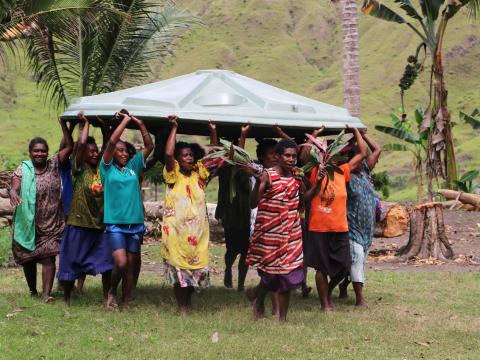
Nufan from Sayang village in Morobe’s Markham District is a Water, Sanitation and Hygiene (WASH) committee in her community, along with her sister-in-law, Yakusa.
She says they were taught about WASH and encouraged to start building toilets, beautifying their community, and organising it so it would be aligned with the provincial government-endorsed and project-supported Healthy Island Concept (HIC).
The HIC is about building climate-resilient, sustainable communities where health, development, and the environment are entwined for the benefit of current and future generations. The Markham WasH Project, supported by the Water for Women fund, is inspiring target communities in Markham to take this stance.
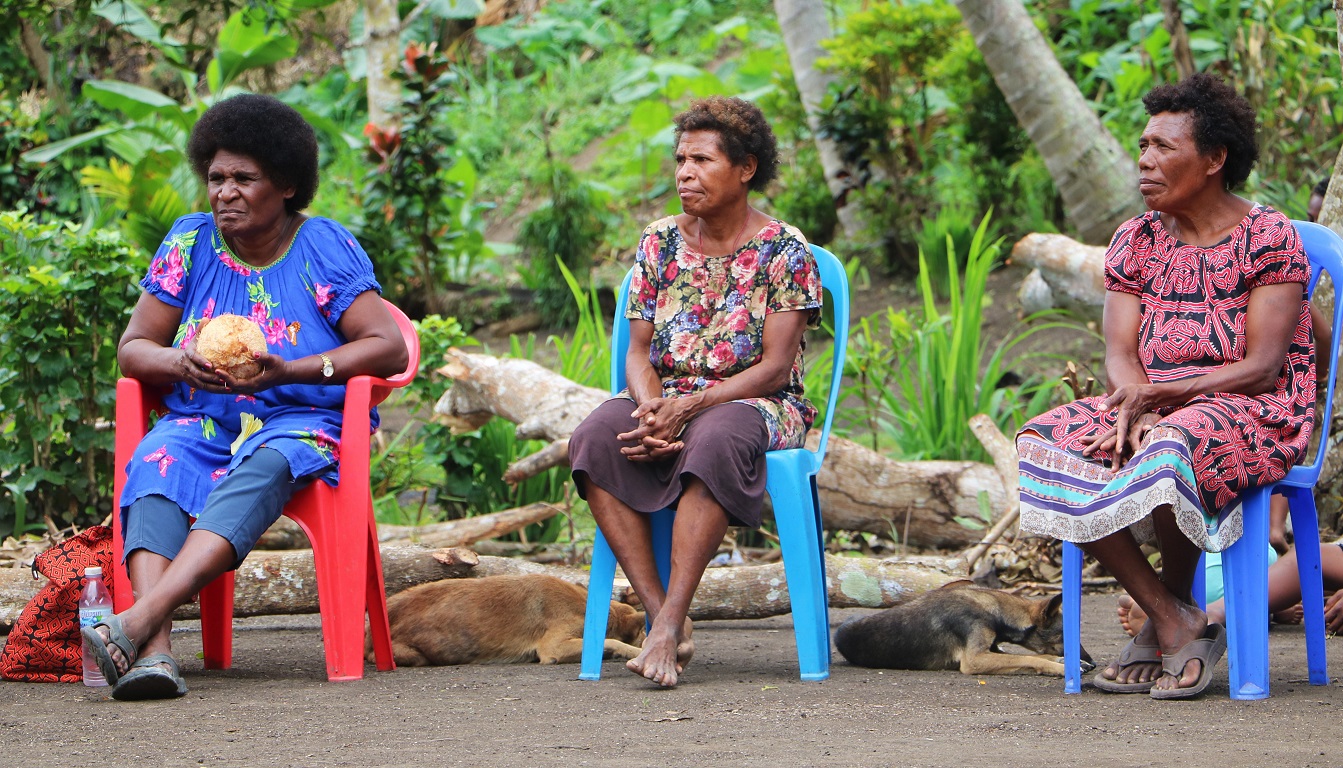
“Women struggle when there is no water source nearby. We have to walk long distances to fetch water, apart from going to the gardens and doing other chores. Often, we would cook very late at night for our families. Sometimes, when the whole village is asleep, the women would still be up, “adds Nufan.
She says that they knew their only hope of getting some assistance would be from the Water for Women Markham WASH project, which worked in close partnership with the Markham District Development Authority.
Nufan reminisced about how they had to move part of their village down from the hinterlands because they wanted to access some services, but still, they had no bridge to cross over the Leron River, to carry their market produce to the nearby Leron or the main market at Markham station.
Their main mode of transport was walking and through inflated inner tubes of large vehicles, such as those that frequented the Lae – Highlands Highway, the semi-trailers.
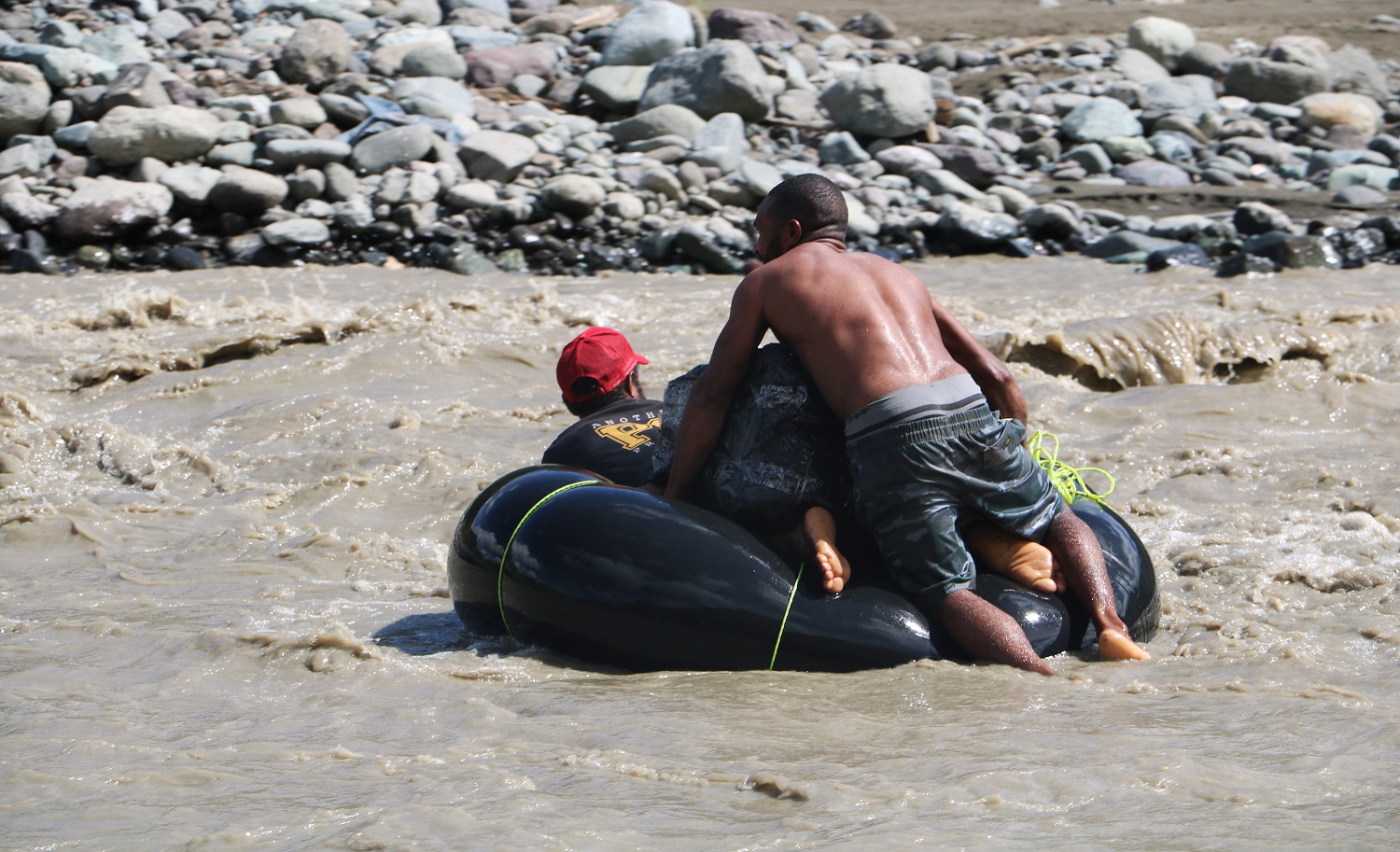
The Community understands that the services they need cannot all come at once, but it would be good to start somewhere, hence the duo, as WASH committee members decided to take the lead and seek assistance through the Water for Women WASH project for water supply.
The nearest World Vision office was in Lae City, an estimated 43 miles from Markham District. The duo, Nufan and Yakusa, travelled to Lae carrying the burden of their community and, with heavy hearts and teary eyes, spoke to our project staff in Lae about their struggles.
“We have been watching every other community nearby is receiving some kind of service, but we felt we had been left out. Now you are here, we want to tell you about our struggles and the need to access water in our community”, says Nufan.
After Nufan and Yakusa met with our WasH team in Lae, they were encouraged to return to their community and continue empowering their community members to build toilets, organising and beautifying their homes by making flower gardens around their homes and toilets as well.
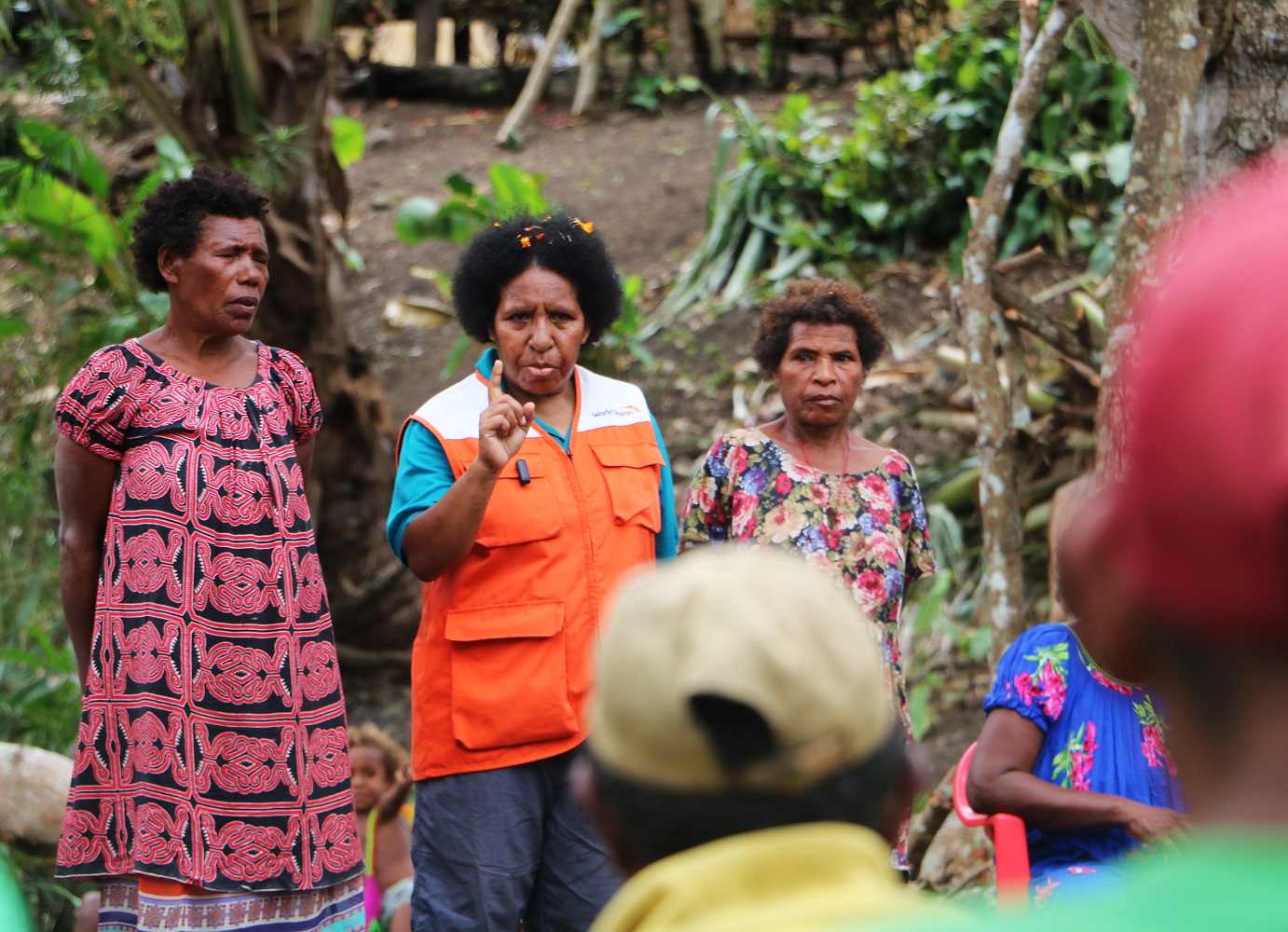
“After we completed what was requested by World Vision, the Health Extension Officer in the nearby clinic came and had a look at what we had done. He was pleased and so he advised officers from the District to come and visit us”, adds Nufan.
World Vision in PNG intervened in late September 2024 through the wfw Markham WasH project by supplying a 9000-litre water tank, poly pipes, and cement bags to construct a gravity-fed water supply system for the Community.
"The sight of the 9,000-litre water tank brought me to tears. This was something new, something our parents and grandparents could never have imagined. It felt like a dream come true for our community,” says Nufan.
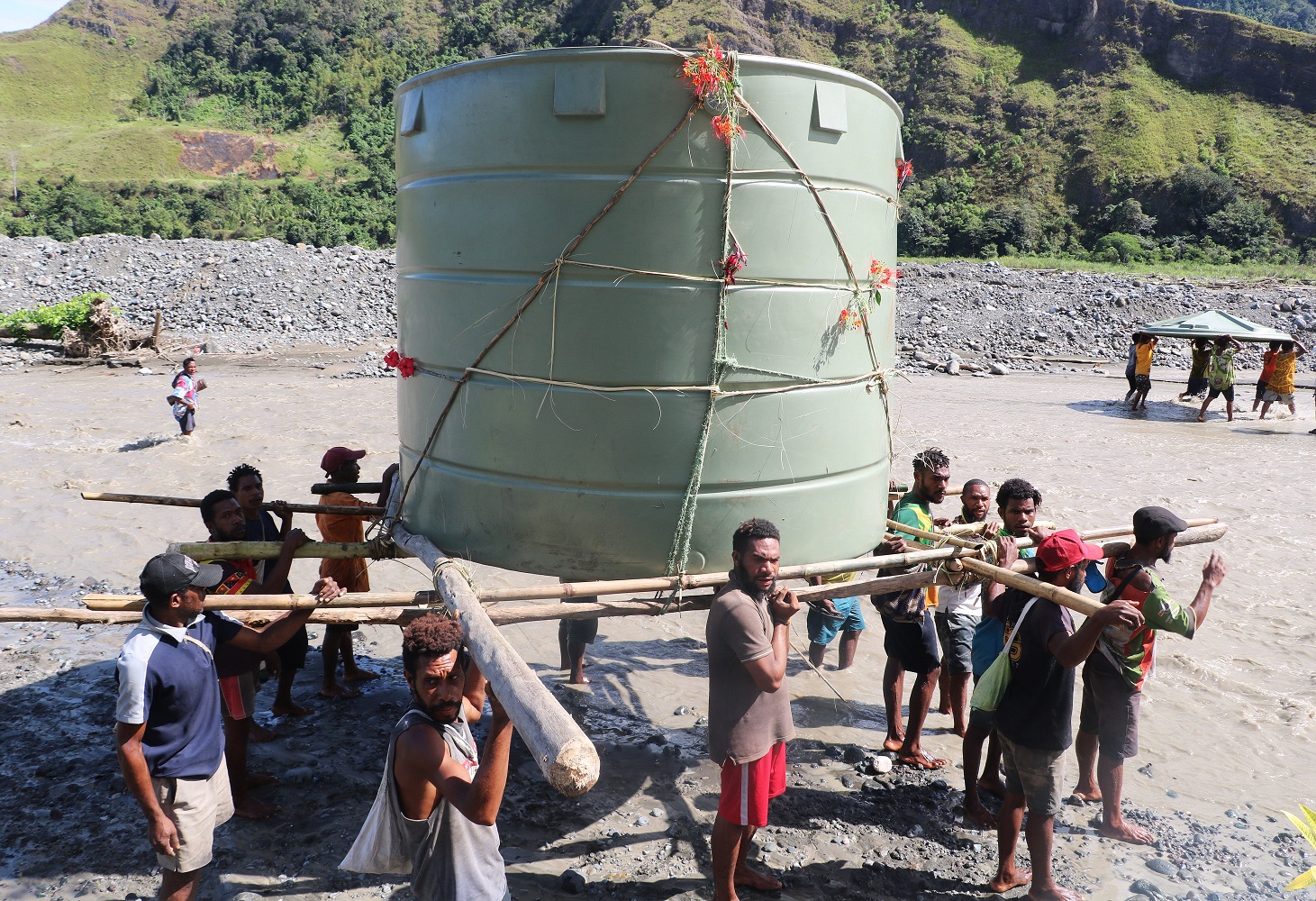
Wanti Liron, the District Community Development Officer with the Markham District Development Authority, confirms that the community’s initiative in beautifying and building safe toilets is guided by the Healthy Island Concept, which falls under a Key Pillar of the Markham DDA’s community development goals.
“I told the community, the stance you are taking to build safe toilets for each household falls under the DDA’s 4 pillars of community development, which are community governance, community economy, community learning, and community environment”, adds Wanti.
She says the Sayang community is now undertaking the “community environment” pillar, which is one of four, as previously stated, but she wanted them to also build a community learning centre.
To her amazement, the community has already taken the initiative to build a Community Learning Centre, just as she had requested, and it is due to open in mid-October 2024.
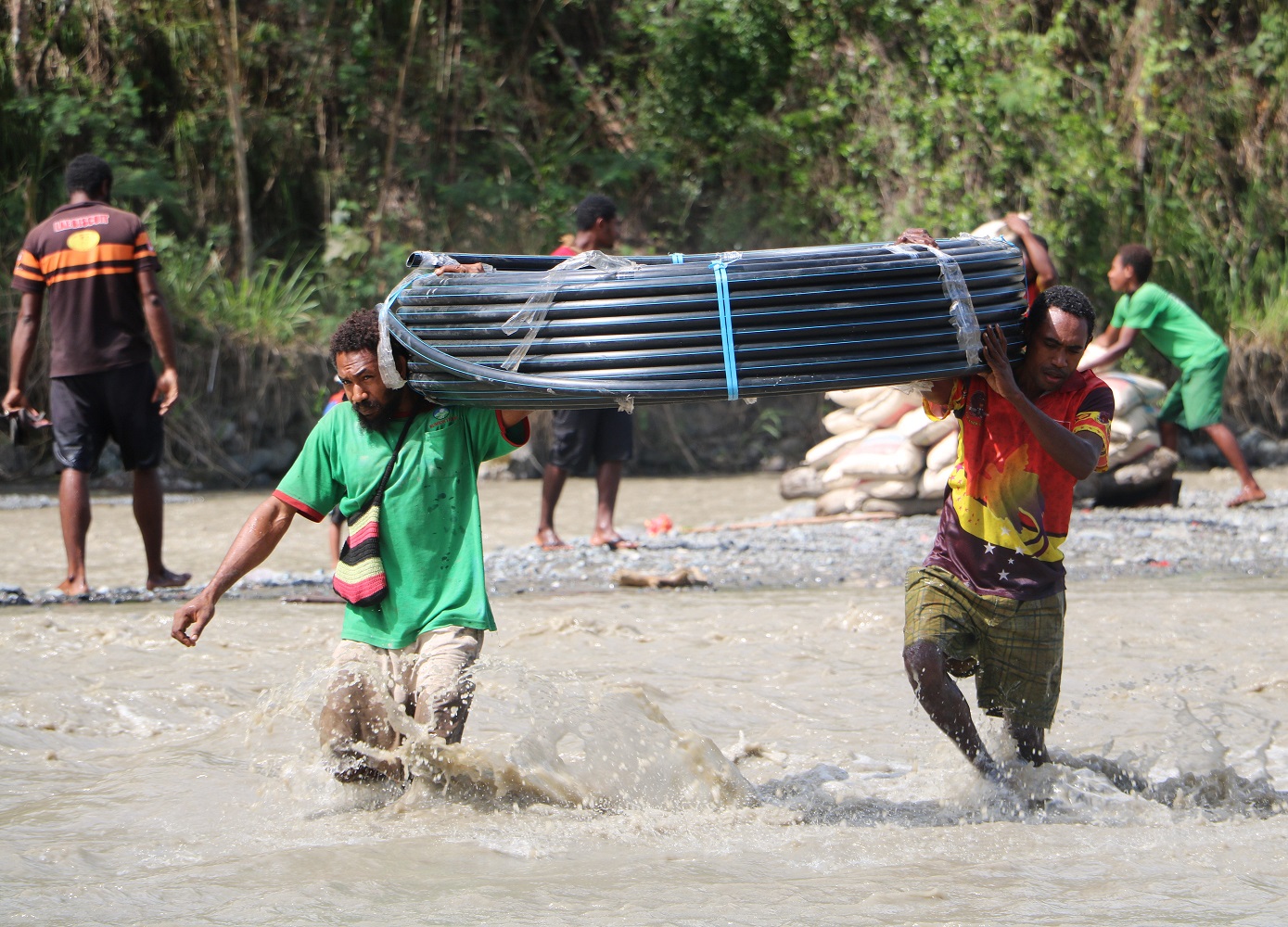
She adds, “I am impressed that those leading this initiative are two women (Nufan and Yakusa), and in our local custom, women are not allowed to instruct men on what to do, but this community is very special because the men listen, and support whatever these two women say”.
Wanti says that World Vision’s intervention is timely, as the community had requested water supply assistance, but the Markham DDA could not support that request at the time. Still, when we intervened, it was a blessing as it was what the community had previously requested.
“I’m very happy that World Vision has come on board to complement the work of the DDA. The Government cannot work alone, together with NGOs we must work in partnership to help communities”, adds Wanti.
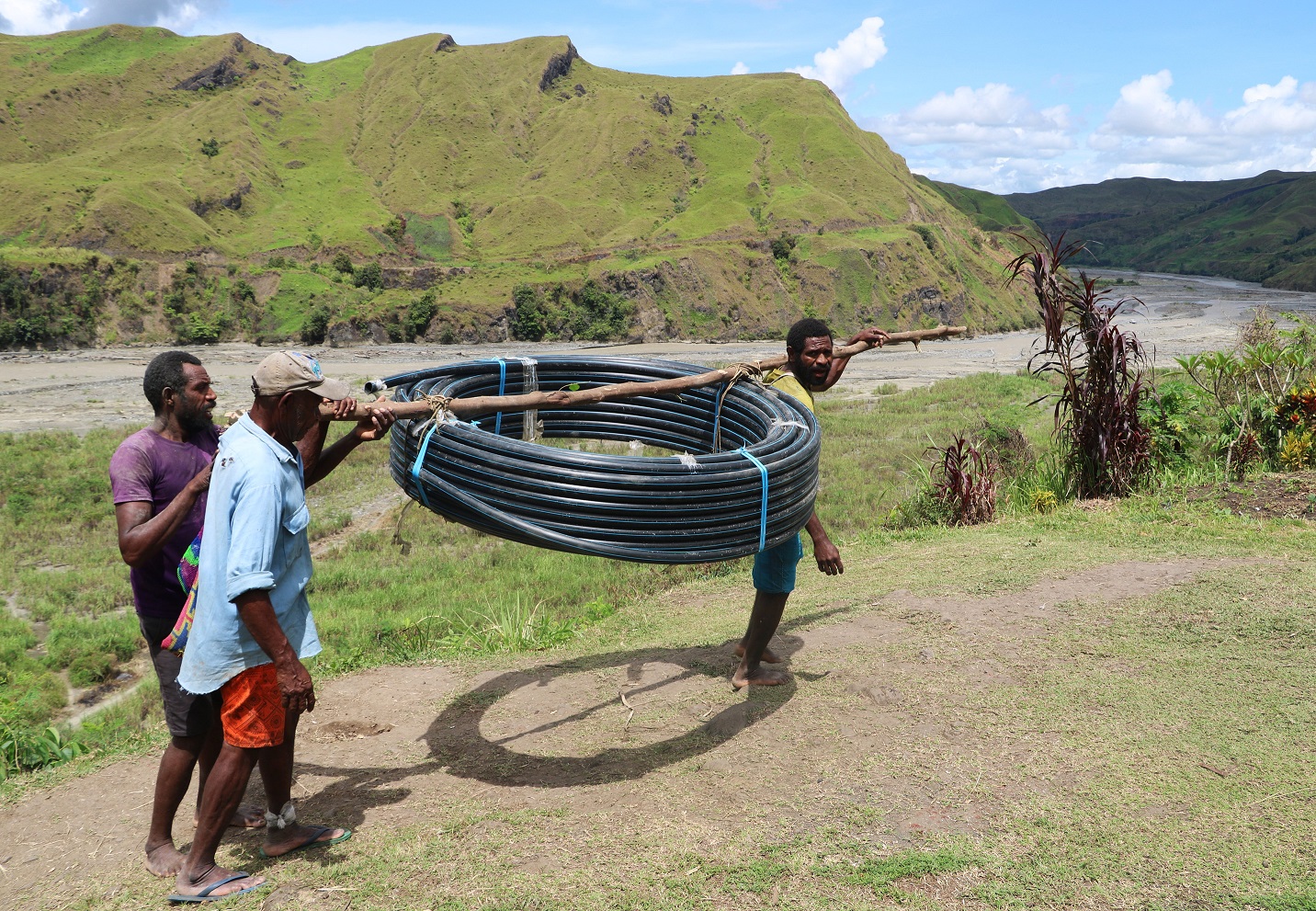
The Women for Water Markham WASH project, implemented by World Vision in PNG works in close partnership with the Markham District Development Authority to empower communities to improve their water, sanitation, and hygiene status, community youth education; and empowerment to the main goal of creating climate resilient communities where health, development, and the environment are tied together, for the benefit of current and future generations.